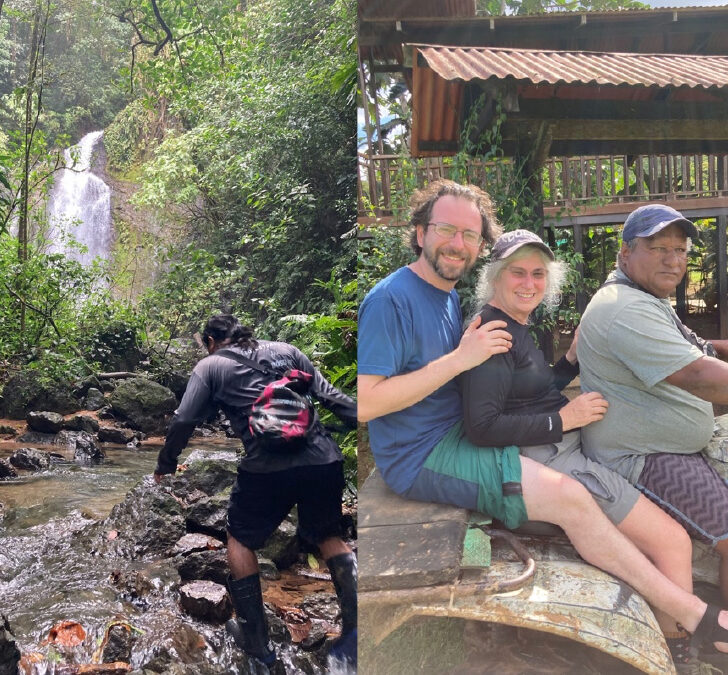When we listen, what do we hear?
As we hiked through the jungle, our guide would often stop when he heard sounds that he wanted us to notice. To my ear, they initially sounded like pleasant background music, or sometimes a not-so-pleasant cacophony, but I couldn’t have told you more than that. However, when he said “listen, the howler monkeys are warning there’s a puma close by”, my ears perked up. What had been only background noise was all of a sudden front and center for me. Not only was I now hearing the sounds differently, but my primitive brain heightened my fight, flight, and paralysis instincts. As we walked on in the early morning hours of sunrise, we heard the birds communicating their plans for the day their clear exuberance at discovering food, and calls for companionship wafting through the air.
birds communicating.
As lawyers, it’s easy to grow accustomed to particular words and language usage, forgetting that the wild calls of the legal jungle were once unfamiliar to us. For most clients, legalese and jargon-heavy lawyerly discourse is not second nature, so it’s important that we guide them toward understanding what might otherwise seem like coded language. Something that seems to a lawyer to be simply “part of the process”, may be entirely murky to a client. If we hope to help clients navigate the many steps on their difficult journey, translation is often the first step in creating crucial layers of understanding. The practical application of this comes into play when, for instance, a lawyer tells a client that they need to complete a financial statement to be filed with the court. A client may hear these words, and focus on the “filing with the court” part of the sentence; they may imagine that one consequence of completing their financial statement will be an early court-date. Filled with trepidation about court, the client may feel anxious, becoming paralyzed and unable to complete their statement. In turn, while their lawyer may feel that this lack of compliance is willful obfuscation, the client may experience the lawyer’s resultant irritation as a failing on the client’s part.
When we speak, what do we say?
After a few days of ten-mile-a-day hikes, we reached a summit that would require a rocky, muddy descent the next morning. Our guide spoke to me, saying that he wanted to be clear about the slippery nature of our return hike; if it rained overnight (it did.), the hike out of the jungle would be a treacherous all-day endeavor.
The only alternative plan was to take an ATV out from the travelers’ bungalow where we had spent the night; they had to call for the vehicle that night. My body was feeling strong and I didn’t want to do less than I thought I could, but the thought of slipping and falling with no alternative path wasn’t appealing either. My boots were soaked to the core, and clearly wouldn’t dry overnight in the jungle’s humidity. My husband and my daughters absolutely wanted to hike out. I was ambivalent. My son spoke next, saying that the ATV would be a different kind of adventure and that he’d be happy to take it out with me. My pride was saved, the deal was sealed, and the call was made for the morning ATV.
Three guides: one guide with the wisdom of experience to gently explain when an alternative path may be expedient, another with the compassion of allyship, and a third with the vehicle. Our ride back included witnessing monkeys cascading across trees, coati running across our path, and dogs taking a river swim while we’d paused in the riverbed to attend to the ATV’s overheating engine.
Why do we choose the words we choose?
Sukia Travel, the company we engaged to guide us, was superlative. Their guides were knowledgeable locals who enthusiastically shared their world with us in remarkable ways. ‘Sukia’ means ‘indigenous’, and they chose this as their company-name to highlight that their business is entirely owned and operated by locals who know the terrain intimately, treat their environment respectfully, and want to teach others to do so as well.
The word ‘consilium‘ is derived from Latin, and means ‘council of wise advisors’. In ancient Greece, judges engaged consiliums, which were chosen on a case-by-case basis to meet the individual needs of families and conflicts at hand. We chose our name to represent that history and the concept of a tailored advisory created to guide our clients in their unique circumstances.
Guiding is part science and part art.
Knowledge is key, but compassion matters too.
A good guide, in any jungle, listens carefully, speaks gently, and acts purposefully.

